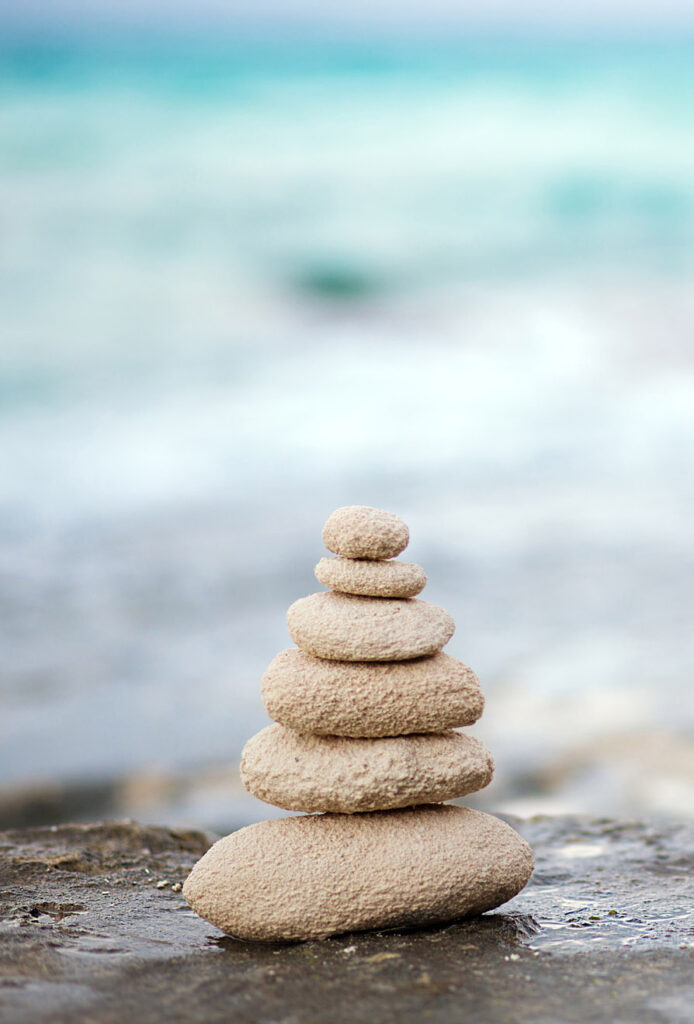Meditation 101
Meditation is a practice that involves focusing the mind and eliminating distractions to achieve a state of mental clarity, emotional calm, and physical relaxation. It’s a mental exercise that has been practiced for thousands of years across various cultures and spiritual traditions. The primary purpose of meditation can vary, but it often includes goals such as stress reduction, increased concentration, enhanced self-awareness, and spiritual growth.
Techniques
There are numerous forms and techniques of meditation, but most share some common elements:

1. Focused Attention: This is the act of concentrating on a specific object, thought, or activity. It could be the breath, a mantra (a word or phrase repeated silently), a visual object, or even bodily sensations. By focusing the mind, practitioners learn to reduce the impact of distractions.
2. Relaxed Breathing: Deep and even-paced breathing is a hallmark of many meditation practices. This helps to calm the nervous system, reduce stress, and enhance concentration.
3. Quiet Environment: A quiet setting with minimal distractions can help you focus better. This is especially important for beginners who may find it challenging to meditate in noisy or chaotic environments.
4. Comfortable Posture: While many people associate meditation with sitting cross-legged, it can be practiced in various positions, including sitting, lying down, walking, or even standing. The key is to maintain a posture that is both comfortable and stable.
5. Open Attitude: Meditation encourages an attitude of openness and acceptance. You are encouraged to observe thoughts and feelings without judgment, allowing them to pass without attachment.

Meditation techniques can be broadly categorized into two types:
Concentrative Meditation: This involves focusing on a single point of attention. Examples include focusing on the breath, repeating a mantra, or gazing at a candle flame. The goal is to quiet the mind by narrowing its focus.
Mindfulness Meditation: This practice involves being aware of the present moment without judgment. Practitioners observe their thoughts, feelings, and sensations as they arise and pass, fostering a state of non-reactive awareness.
There are many benefits to a regular practice of meditation, both health and mental well-being. Meditation can also lead to insights into your personal and spiritual development.
To begin a meditation practice, start slow. Sitting for 5 minutes is a good beginning. Find a comfortable place in a room in your apartment, home, or space that feels safe, light, and comfortable. You can add a beautiful picture, a crystal, a candle or, all of these to help create the setting. You can sit on a pillow, cushion, or even a comfortable chair. Keep your body upright but not too rigid and your palms up on your lap. Finding what works for you is important so if you like music you can use drumming sounds, crystal bowls, nature sounds, mantras, or classical music. You can begin with just 5 minutes and work your way stretching the time as it feels right throughout the week and moving forward, as you continue to establish a habit, you will notice how much longer you can stay connected in your meditation. Mornings are always a good time to start and meditating at night before you go to bed can help with sleep.
If you are interested in stepping into meditation please reach out as I have a meditation group forming in August. If you would like to just have individual meditation sessions they are also available. View THIS PAGE for more information on my meditation group.
You can always contact kimvaldes@theheartwaycounseling.com or call 470.227.0169 for further information on individual sessions and scheduling.

